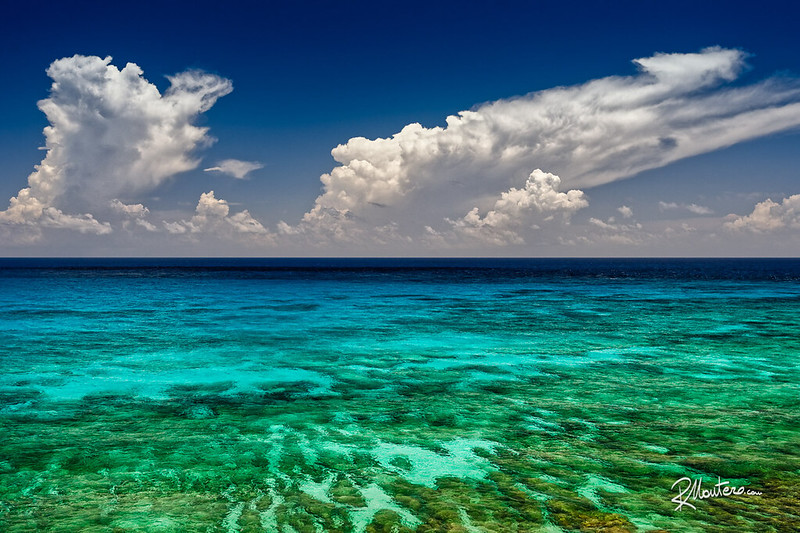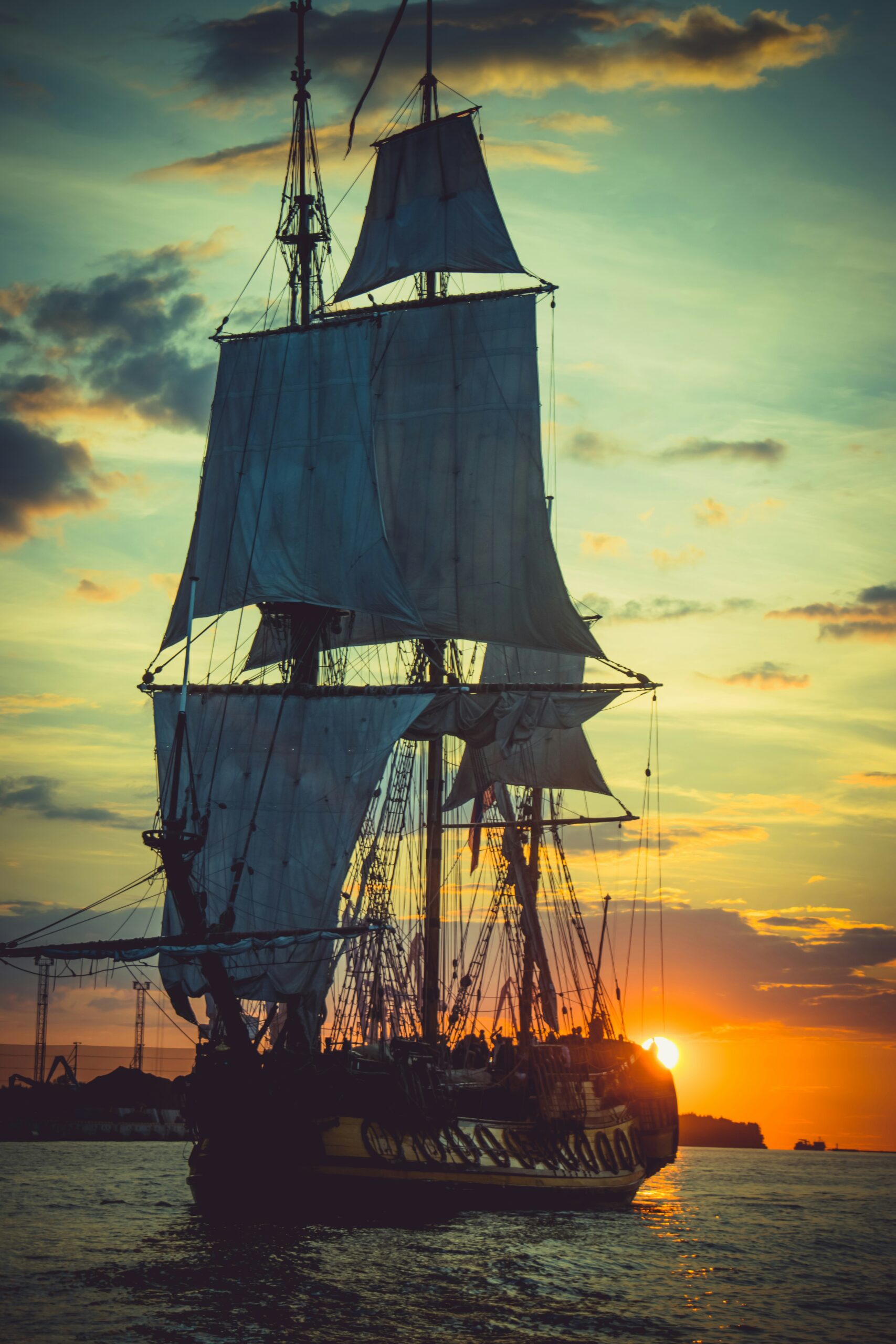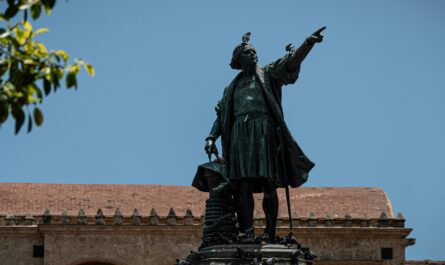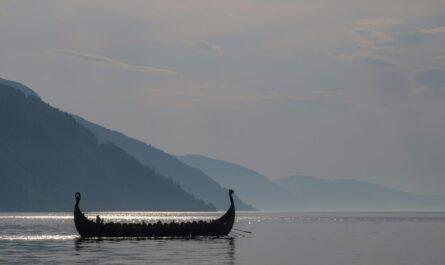The Atlantic Ocean has long served as a vast highway for exploration, trade, and cultural exchange, shaping world history in ways few other natural features have. As European explorers set sail across this vast ocean, they not only discovered the lands that would become known as the Americas but also set in motion a series of global changes that would influence economies, societies, and cultures around the world. The Age of Exploration led to the rise of European empires, the spread of global trade networks, and a deepening cultural interconnectedness—albeit at great human and ecological cost.
This article delves into the Atlantic Ocean’s role as the pathway to the New World, examining how it became the bridge between continents, fostering exploration, colonization, and the consequential reshaping of global history.
Setting the Stage: Europe and the Need for Exploration
By the late 15th century, Europe was on the cusp of profound social, economic, and technological transformations. The Renaissance brought about a renewed interest in science, geography, and the natural world, while emerging nation-states like Spain and Portugal were eager to expand their influence. European kingdoms also sought a direct route to Asia, which was rich in spices, silk, and other valuable commodities, as trade through overland routes like the Silk Road was both dangerous and monopolized by intermediaries.
Explorers needed to find an alternative route, and attention quickly turned toward the Atlantic Ocean. Advances in navigation, mapmaking, and ship design meant that explorers could now venture farther than ever before. Instruments such as the astrolabe and compass helped sailors chart their courses, while the development of the caravel—a small, agile ship capable of sailing against the wind—enabled long-distance travel across the ocean.
The First Atlantic Voyages: Pioneers of Exploration
The early pioneers of Atlantic exploration included Portuguese navigators who charted the western coast of Africa, establishing trading posts and colonies along the way. Under the leadership of Prince Henry the Navigator, Portuguese explorers reached the Azores and the Madeira Islands in the mid-15th century, learning valuable lessons in ocean navigation and mapping Atlantic winds and currents.
However, it was Christopher Columbus’s famous voyage in 1492 that forever altered the course of history. Sponsored by Spain’s Catholic Monarchs, Columbus aimed to reach Asia by sailing west, convinced that the Atlantic provided a shortcut to the riches of the East. Instead, he arrived in the Bahamas, initiating contact between Europe and the Americas and marking the beginning of the Columbian Exchange, a profound era of biological and cultural exchange that transformed life on both sides of the Atlantic.
The Columbian Exchange: A New World for the Old
The Columbian Exchange refers to the widespread transfer of plants, animals, diseases, and technologies between the Americas, Europe, and Africa following Columbus’s voyages. This exchange reshaped societies in ways that were both beneficial and devastating, altering the course of global history permanently.
- Agricultural Transformation: The introduction of new crops from the Americas, such as maize, potatoes, tomatoes, and cacao, transformed European agriculture and diets. Potatoes, for example, became a staple crop in Ireland and Northern Europe, helping to sustain population growth and providing a crucial source of nutrition. In return, Europeans introduced wheat, rice, and sugarcane to the Americas, where they became integral parts of local economies.
- Animal Domestication: Europeans brought horses, cattle, and pigs to the New World, animals that would significantly change Indigenous lifestyles, particularly in the Great Plains, where horses revolutionized transportation and hunting for many Native American tribes.
- Disease and Population Impact: Perhaps the most devastating aspect of the Columbian Exchange was the spread of diseases such as smallpox, influenza, and measles to Indigenous populations in the Americas. Lacking immunity to these diseases, millions of Native Americans perished, leading to the collapse of entire societies and the profound depopulation of the continent.
- Cultural and Religious Influence: The arrival of Europeans brought profound cultural changes. European missionaries spread Christianity, and settlers introduced new languages, customs, and technologies that altered Indigenous ways of life. Likewise, European art, literature, and architectural styles blended with local traditions, creating hybrid cultural forms that reflected the mixing of European, African, and Indigenous influences.
The Age of Conquest: Colonization and Empire-Building
Following the discovery of the New World, European powers raced to establish colonies in the Americas. Spain and Portugal led the charge, signing the Treaty of Tordesillas in 1494 to divide newly discovered lands between them. Spanish conquistadors like Hernán Cortés and Francisco Pizarro led expeditions to Central and South America, where they overthrew powerful empires such as the Aztecs and Incas. The extraction of resources, particularly gold and silver, funded Spain’s expansion in Europe and allowed it to become a dominant global power.
The Atlantic Triangle Trade
The economic engine behind European expansion in the Americas was the Atlantic Triangle Trade, a system of commerce that connected Europe, Africa, and the Americas in a cycle of goods, labor, and resources. European merchants shipped manufactured goods to Africa, where they were exchanged for enslaved people. These enslaved individuals were then transported across the Atlantic to the Americas in what became known as the Middle Passage, where they were forced into labor on plantations. The Americas, in turn, exported sugar, tobacco, cotton, and other raw materials back to Europe, fueling further economic growth.
The Atlantic Triangle Trade created immense wealth for European empires but had a tragic human cost. The transatlantic slave trade devastated African societies and inflicted unimaginable suffering on millions of Africans forcibly transported to the Americas. The legacy of slavery remains a painful reminder of the exploitation that accompanied the Atlantic exploration era.
Navigating the Atlantic: Advances in Navigation and Mapping
European exploration of the Atlantic Ocean prompted significant advancements in navigation and cartography. Early maps were crude and incomplete, often based on speculation or inaccurate reports. However, the demands of long-distance ocean travel necessitated precise maps and navigational techniques.
- The Mercator Projection: In 1569, the Flemish cartographer Gerardus Mercator developed a new map projection that allowed sailors to plot a straight-line course across the curved surface of the Earth. Known as the Mercator projection, it became an essential tool for navigation and was widely used by European explorers.
- The Chronometer: The invention of the marine chronometer by John Harrison in the 18th century enabled sailors to determine their longitude accurately, revolutionizing ocean navigation. This advancement helped explorers map the Atlantic more precisely, reducing the dangers of long voyages and making transatlantic navigation more reliable.
- Wind and Current Patterns: Through their explorations, Europeans learned to navigate the Atlantic’s wind and current systems, such as the Trade Winds and the Gulf Stream. Knowledge of these patterns was crucial for successful voyages, as sailors could harness the wind and currents to reach the Americas and return to Europe more efficiently.
The Legacy of Atlantic Exploration
The discovery of the New World and the subsequent European colonization reshaped the world in lasting ways. The Atlantic Ocean served as the conduit for this transformation, bridging continents and fostering unprecedented cultural, economic, and ecological exchanges.
- The Birth of Globalization: The Age of Exploration marked the beginning of a truly global economy. Goods, people, and ideas flowed across the Atlantic, leading to the spread of cultural influences and the development of interconnected markets. Trade networks that began during this period laid the foundations for modern globalization.
- Scientific Advancements: European exploration of the New World inspired scientific curiosity and discovery. Explorers brought back new species of plants, animals, and minerals, which fueled interest in biology, botany, and mineralogy. This period also saw the development of ethnography as explorers documented the customs and cultures of the Indigenous peoples they encountered.
- Transformation of Societies: Atlantic exploration and colonization profoundly changed societies in both the Americas and Europe. While European nations grew wealthier and more powerful, Indigenous cultures in the Americas were irrevocably altered or destroyed. Entire Indigenous societies were disrupted by disease, warfare, and cultural assimilation efforts imposed by European colonizers.
- Environmental Impact: The environmental consequences of Atlantic exploration were vast, leading to the alteration of ecosystems in both the Old and New Worlds. The introduction of new species through the Columbian Exchange, such as cattle, wheat, and sugarcane, transformed landscapes and altered the ecology of the Americas. Deforestation, overfishing, and soil depletion were among the ecological impacts that accompanied colonization.
The Atlantic Ocean’s Role in Today’s World
Today, the Atlantic Ocean continues to serve as a critical link between continents, fostering trade, cultural exchange, and geopolitical alliances. The legacies of Atlantic exploration and colonization are evident in the languages, religions, and cultural traditions that define regions across the Americas. The Atlantic Ocean, once a daunting frontier, has become a symbol of interconnectedness, with modern transatlantic partnerships such as the European Union and the United States reflecting the shared history of Atlantic exploration.
However, the historical consequences of the Atlantic exploration era serve as a reminder of the complex legacy of the Age of Discovery. The Atlantic’s role in the development of modern civilization carries both achievements and deep-seated challenges, as countries continue to grapple with the economic and social impacts of colonialism and the transatlantic slave trade.
Conclusion: The Atlantic’s Influence on Global History
The Atlantic Ocean played an instrumental role in the Age of Exploration, acting as the pathway to the New World and transforming the world as we know it. The discoveries made by explorers who crossed this vast ocean laid the groundwork for globalization, scientific advancements, and unprecedented economic growth. At the same time, these achievements came with significant costs—colonial exploitation, ecological degradation, and the transatlantic slave trade have left legacies that continue to shape societies today.
As we look back on the Atlantic’s role in the discovery of the New World, we gain a deeper understanding of how this ocean shaped the interconnected world we inhabit. The Atlantic remains a powerful force, its waves and currents echoing the voyages, transformations, and profound historical legacies that have defined our shared global history.



